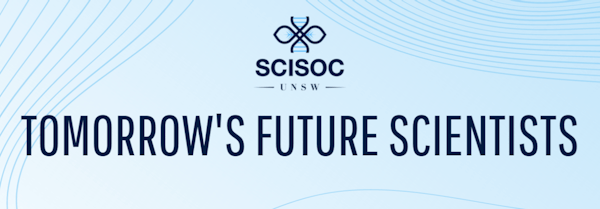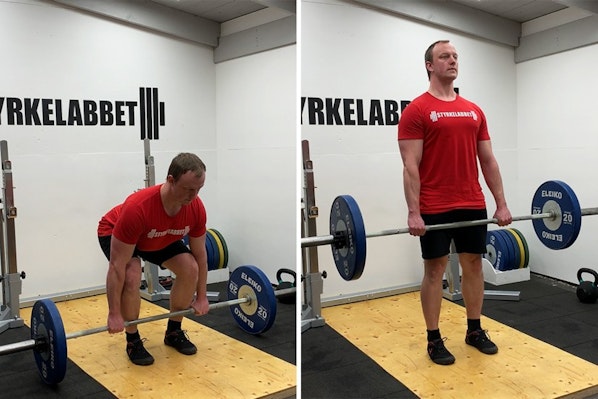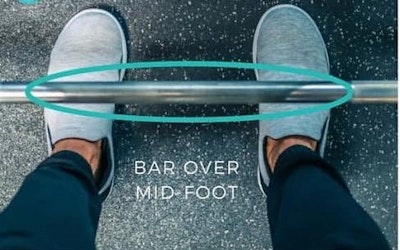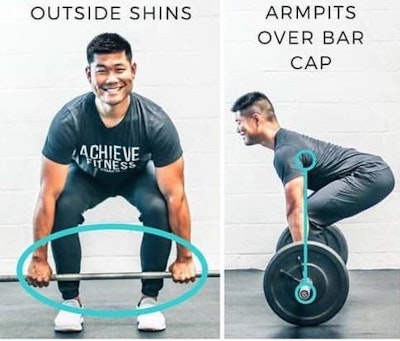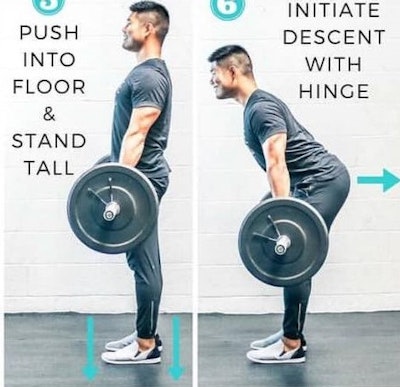Welcome back to another edition of SCISOC's fortnightly newsletter PRISM! In today's newsletter, we discuss tips on how to maintain stress levels during the upcoming exam period. Today's featured Fun Corner is dedicated to the gym rats amongst our audience, and will be a beginner's guide to performing a proper deadlift. Read on more if you're interested, and see you in the next edition of PRISM! |
|
|
SCISOC Study Sessions Feeling anxious about upcoming finals? Come relax and study with us at the SCISOC study sessions to finish your last assignments and continue (or start!) studying for your exams! Students from all degrees and years are welcome, and if you want to study in the comfort of your own home, you can also join us on our Discord study sessions! Join the server in advance, here! WHERE: UNSW Campus (Location TBA) | SCISOC Discord Server WHEN: Week 10 - Follow our Facebook for updates! |
|
|
Have you been feeling extremely stressed out lately? With the finals fast approaching the student body, it’s not a surprise as to why. Because of this, today we’ve gathered a list of tips for you to keep in mind before and during the exam period as a way to relieve the stress and hopefully uphold a more positive mental attitude. |
|
|
| FOOD Before, and especially during, the exam, one of the first things that goes down the drain is maintaining a healthy diet. However, eating healthy has been shown to improve our mental health, as well as improving our concentration and focus. Before exams, try to stay away from sugary and overly processed snacks and instead aim for something more organic and healthy. Try to aim for 3 full meals a day, and remember to stay extra hydrated. Finally, avoid drinking too much caffeine, as this has been shown to increase stress levels. |
|
|
FRIENDS Try chatting to a friend who doesn’t have their exams going on at the moment (but don’t have extremely long conversations that could cut into your study time). By talking to a friend who has their exam period too, you might self-consciously start comparing yourself to them, which will only lead to yourself becoming more stressed. The topic of exams will also be hard to avoid, which will only succeed in stressing yourself (and possibly your friend) out further. In fact, try to avoid the topic of exams in general, and instead chat about something more positive. |
| |
|
| FUN One of the most important things we tend to neglect during the exam period is having fun. By constantly locking ourselves up in our room to study day in day out, we avoid any form of relaxation and thus don’t give our stress any output. Thus, it’s important to remember that it’s still ok to take breaks from time to time and let yourself do something that you enjoy, whether it be reading a book, doing some quick form of meditation, or going out and grabbing lunch with a friend. Meditation in particular has been shown to help out a lot, as it can reduce stress levels and improve concentration. Even if the meditation is a quick 5 minutes to sit down, close your eyes and breathe, it’s still been shown to help improve mental health greatly as long as it’s done regularly. |
|
|
That’s it for the list! We wish everybody a productive and hopefully successful exam period, and remember to keep the three F’s in mind: Food, Friends, and Fun! |
|
|
The deadlift is arguably one of the most alpha gym exercises in existence, and understandably so. For the majority of people, the deadlift will be the exercise in which they can move the most weight. A deadlift is a full body exercise, quite literally using the majority of the major muscle groups in your body, and so it is great for building both muscle and strength. So, what is a deadlift? A deadlift, as the name suggests, is lifting up weight from a dead-stop. The lift traditionally begins with a barbell on the ground, which is lifted from the ground to about hip height, with legs locked out and torso perpendicular to the ground. This can be seen in the photos below. |
|
|
How does one perform a deadlift correctly and safely? Obviously, since most people lift a decent amount of weight in the deadlift, it is vital that their form is correct to ensure their safety. Before you start to put on weight in your deadlift, make sure your form is perfect. For the purpose of this beginner’s guide, we will focus upon the conventional deadlift since it teaches how to hip hinge, which is useful in many other exercises like the barbell row. The deadlift can be broken down into 3 main parts: |
|
|
The Setup - Stand at the bar with feet about shoulder width apart. When looking down, the bar should be placed roughly at the midfoot.
- Hinge at the hips and bend down to grab the bar with both hands outside of your legs. Try to avoid bending your knees as much as possible in this step.
- Now, without letting go of the bar or moving your feet, lean forward so that your shins make contact with the bar.
- Contract your lats (a popular cue is to think about shutting your armpits) to ensure that the bar won’t sway on the way up.
|
| |
|
| The Drive - Contract the muscles in your lower back to maintain a neutral spine (keep your lower back as straight as possible). This back position should be maintained throughout the entire lift.
- Take a deep breath into your diaphragm and brace your core. This helps with keeping your back safe and prevents you from appearing in a gym fails video.
- Hold your breath and drive your feet into the ground, lifting the bar off the ground.
|
|
|
The Lockout - Drive the hips into the bar and stand up straight, contracting the glutes and core. Note, do not lockout your knees as this will cause harm to your knee joint.
- Once the lift is completed, to safely return the weight to the ground, hinge at the hips and slowly lower the weight while bracing your core and maintaining a neutral spine. Keep the bar as close to your body as possible and lower it to the ground.
|
| |
|
While the deadlift is a great mass and strength builder, it is crucial that you perfect form before increasing weight, as a poorly performed deadlift will cause more harm than good. So, for all beginners reading this guide, prioritize form and safety before lifting heavy weights, and you'll thank yourself in the long run. |
|
|
UNSW Science Society is proud to announce our continued partnership with GradReady through 2020. GradReady provides GAMSAT Preparation courses for anyone looking to pursue Medicine after they graduate.
This process starts earlier than you think, so if you’re studying medical science or just have that passion, check out what they have to offer! |
|
|
| This student Club publication is proudly supported by Arc. For more information about Arc Clubs, visit www.arc.unsw.edu.au. |
|
|
| |
